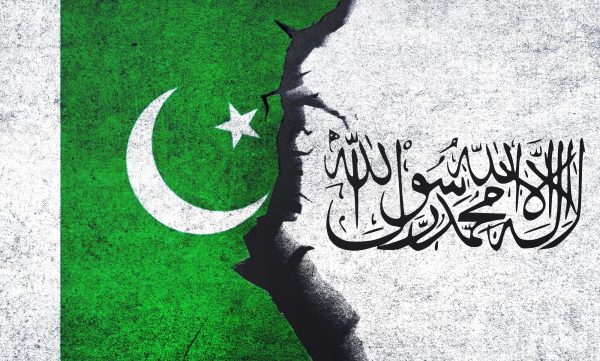The Taliban claims that members of ISIS and other “destabilizing” groups, with the “indirect support of certain factions,” have established themselves in Balochistan and some tribal regions of Khyber Pakhtunkhwa, Pakistan.
In its annual security report published on Wednesday, January 22, the Central Commission for Security and Purging of the Taliban accused Pakistan of supporting ISIS.
The report states that the “plot of sedition and destabilization-(ISIS)” has been completely suppressed in Afghanistan; however, some leaders of these groups, with indirect support from Pakistan, have begun reorganizing themselves.
According to the report, “many commanders, heads of important branches, planners, and executors of major attacks, as well as hundreds of their members (mostly ISIS), have either been killed or arrested.” Meanwhile, “some of the leaders and members of this group, who fled to neighboring countries after being suppressed, have once again begun reorganizing with the tolerance, leniency, and indirect support of certain factions.”
Although ISIS is not directly named in this report, the Taliban officials usually refer to ISIS and other opposing groups as “destabilizing projects” or “plots.”
In its report, the Commission accuses neighboring countries of providing indirect support for terrorism, further stating that fleeing ISIS leaders have “established themselves in Balochistan and some tribal regions of Khyber Pakhtunkhwa of Pakistan, where training camps were set up, financial assistance was provided, and conditions were made favorable for recruitment and propaganda from various countries around the world.”
The Taliban claims to have credible information showing that these groups “are transferring newly recruited forces from several Asian and European countries to their centers in Balochistan and the tribal areas of Khyber Pakhtunkhwa through Karachi and Islamabad airports.”
The report has raised concerns about the growing threat, warning that “there is a high likelihood that in the coming months, these individuals may be used to carry out attacks in various countries in the region and globally.”
Pakistan has not yet responded to the Taliban’s report, though earlier, the federal government of Pakistan had leveled similar accusations against the Taliban, leading to border tensions and warlike rhetoric.
The ongoing security dynamics in the region are creating an increasingly complex environment, with accusations, counterclaims, and the growing presence of terrorist groups adding to the instability. These tensions, unless addressed through diplomatic channels, could lead to further escalation, both regionally and internationally.
The involvement of neighboring countries, particularly in providing indirect support to these groups, raises critical questions about regional security and cooperation.









































